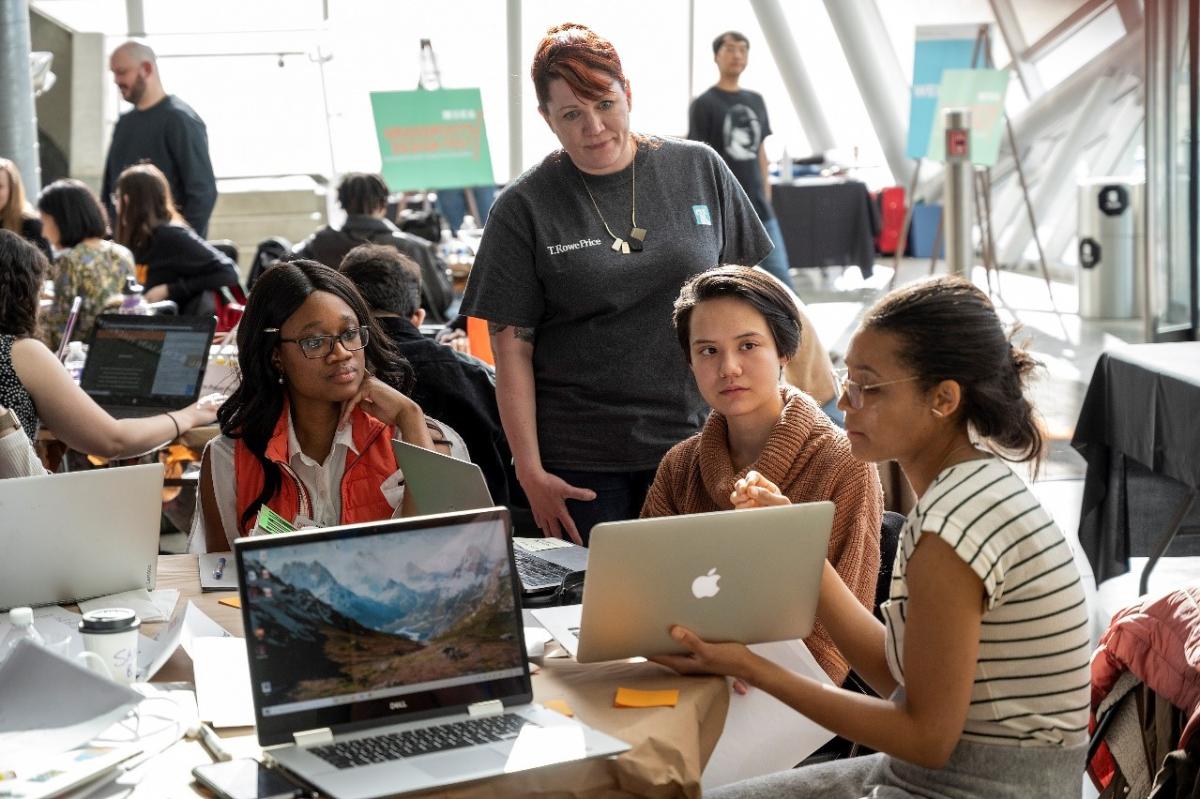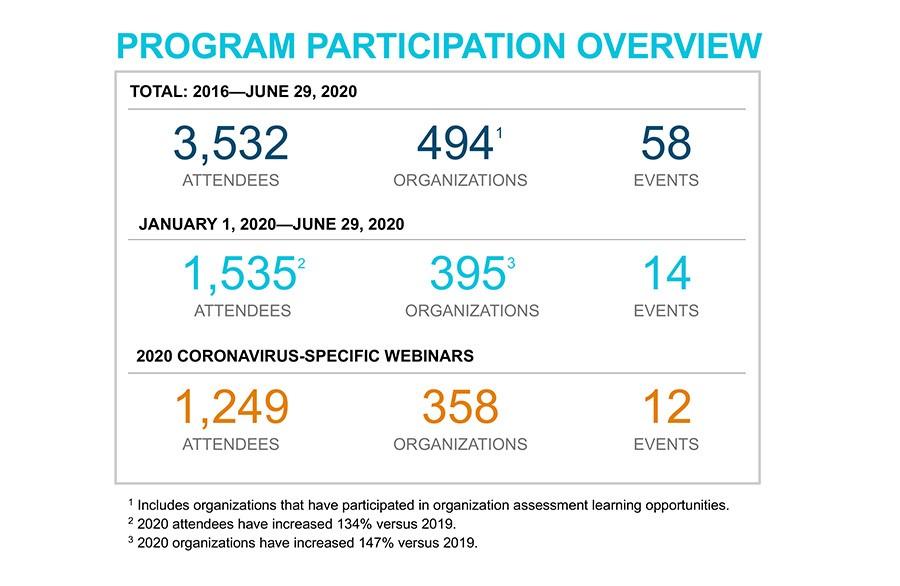T. Rowe Price Helps Nonprofits Navigate Challenging Times With Capacity Building Program
Earlier this year, as challenges posed by the coronavirus pandemic mounted, T. Rowe Price immediately looked at ways we could help communities stay strong—in Baltimore and around the world.
Its Foundation was supporting relief efforts to address gaps in community services and ensure food stability for families and students in its hometown, Baltimore, who have been impacted by the loss of meal services due to school closures. It also focused on helping strengthen the nonprofit sector in the U.S. through its Capacity Building Program (CBP).
Created in 2016 to help communities and local organizations in West Baltimore after the death of Freddie Gray and the ensuing unrest, CBP has since expanded to offer tools, experts, and resources aimed at building and strengthening nonprofits to organizations around the country.
“In hundreds of discussions with community residents [the T. Rowe Price Foundation has] learned that one of the areas important to them was strong leaders and strong institutions,” says John Brothers, the T. Rowe Price Foundation president. “The issues in dis-invested communities are real, and without strong leaders and strong organizations, those communities will be unable to move forward.”
Building capacity during a pandemic
In March, as the coronavirus pandemic began to hit U.S. communities, the Foundation began transitioning to an all-virtual set of offerings—a move that allowed them to support nonprofit organizations in other communities where the firm had offices, such as San Francisco, Colorado Springs, and New York City
“Capacity building is not often thought of as a social change mechanism but in fact it can be one of the best ways to effect change at the local level,” says John. “Communities need infrastructure to help them advance, and often that’s the best resource a company can provide. Our work is focused on the long-term health of our partners, and we are committed to seeing its results over time.”
In good times or bad, strong organizations are essential to creating meaningful community change. John says, “In tough times, the challenges faced by community organizations become more acute. Upheavals in the economy have a direct impact on revenues flowing into the nonprofit sector. For organizations that may already be on tight budgets, the loss of revenue can be more than they can handle.”
For example, a study of The Financial Health of Nonprofits in Baltimore by SeaChange Capital Partners funded by the Foundation found that 40% of Baltimore nonprofits had zero or negative net income margins; half have less than three months of cash on hand; and the average overhead rate was just 11%—and this was before COVID-19. “With the current economic uncertainty, these economic challenges are going to grow, and many nonprofits could be in real trouble,” John says.
Webinars have focused on helping organizations manage through emergencies, covering topics from financial leadership in times of crisis to mental health care for frontline workers. Most participants said they are likely to apply learnings from the webinars to their work and that the content presented was very helpful.
“The content of this presentation was so OUTSTANDING and relevant to what is going on… Well done and EXACTLY what we need right now. Thank you,” said one participant in an anonymous post-event survey.
“The presentation reminds me that I must keep a macro perspective concerning my organization and not get totally caught up looking at my organization in a vacuum,” said another.
In conjunction with this work, the firm’s Corporate Responsibility team launched a community resources webpage, designed to provide the tools small and mid-size nonprofits need to work successfully in a virtual environment. Created in partnership with the firm’s Enterprise Learning team, the page includes best practices and tools that our firm uses to help our global teams stay connected, such as meeting in a box, leading in a virtual environment, and engaging remote workers.
A focus on racial equity
Amid the recent outpouring of sentiment around racial inequality in the U.S. this year, the Foundation’s early focus on racial equity enabled it to offer advice and resources quickly as the issue took center stage in the U.S. And the new virtual environment means that organizations in communities across the country are taking part. The Foundation will focus its upcoming programs for nonprofit leaders on racial equity education, offering tools and strategies for nonprofits to organize their programs through a racial equity lens and for nonprofit leaders to unpack the implications of race, power, and privilege in leadership.



